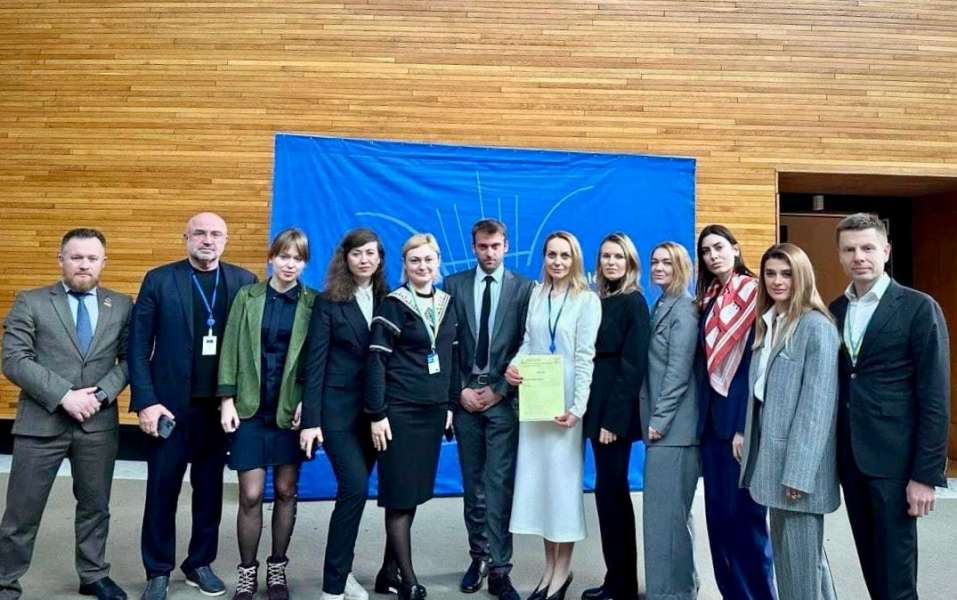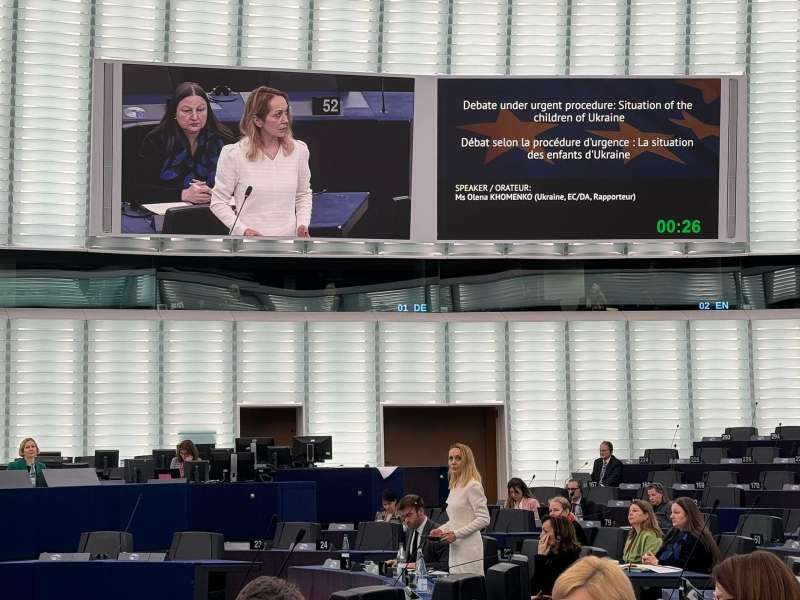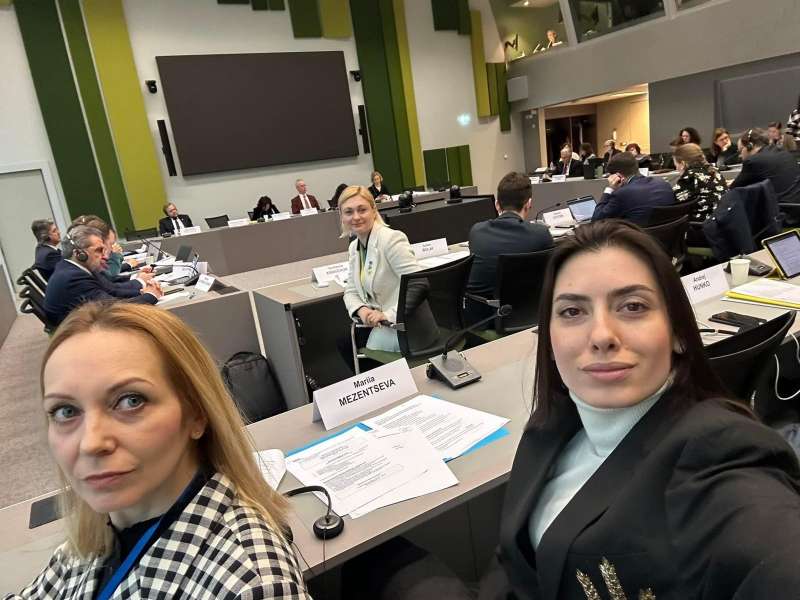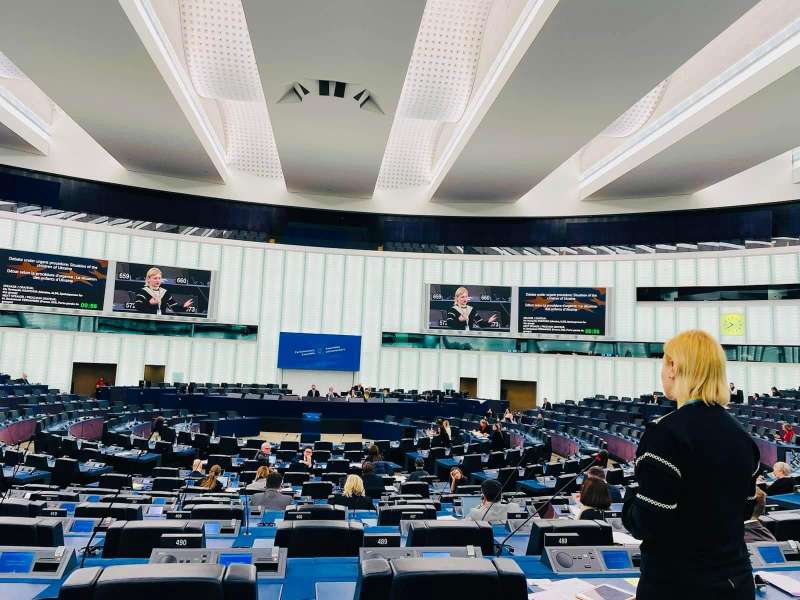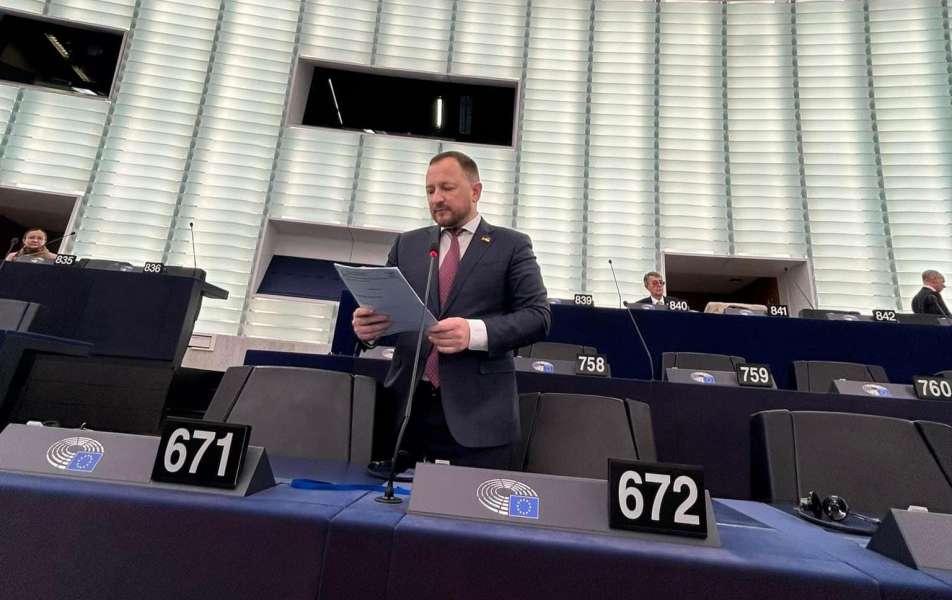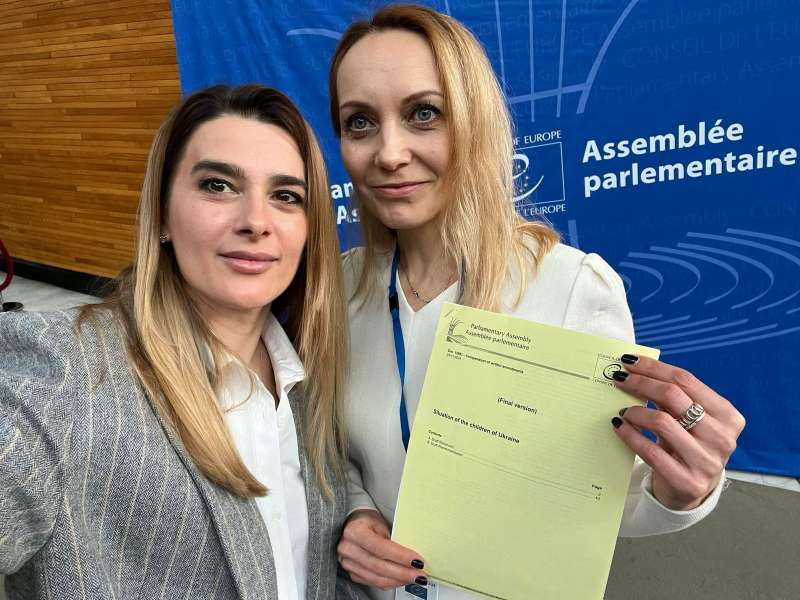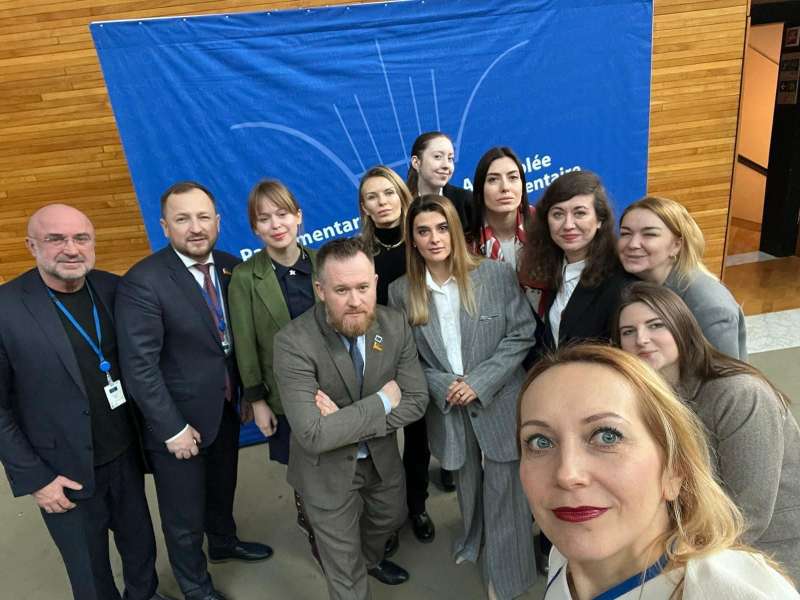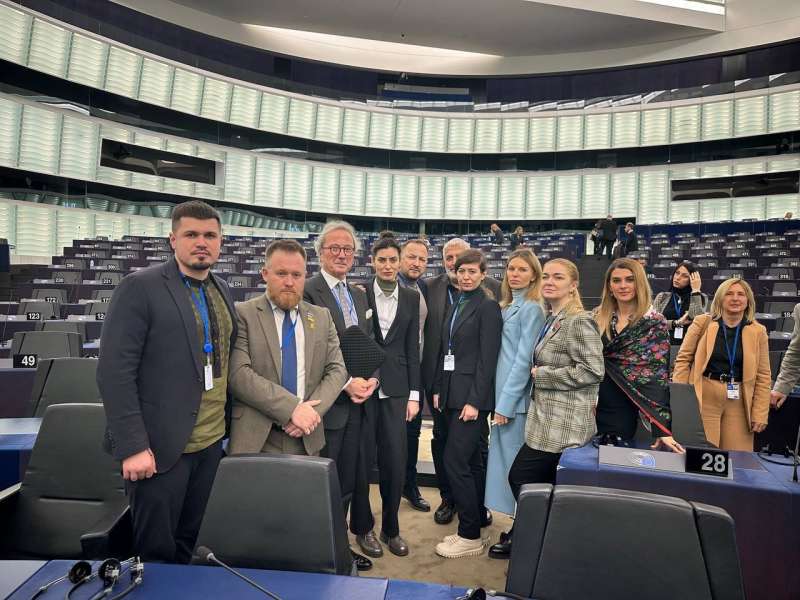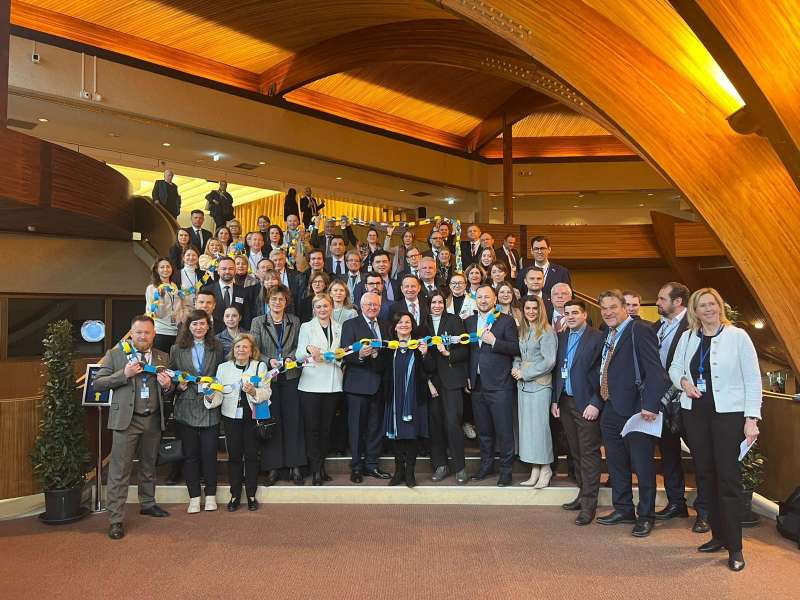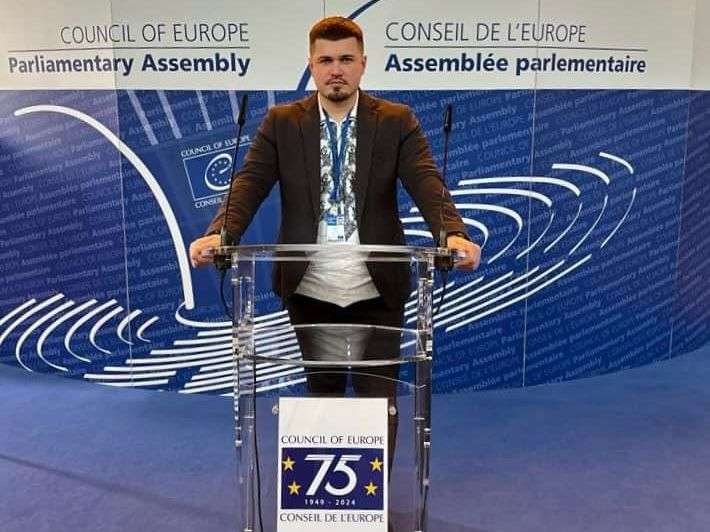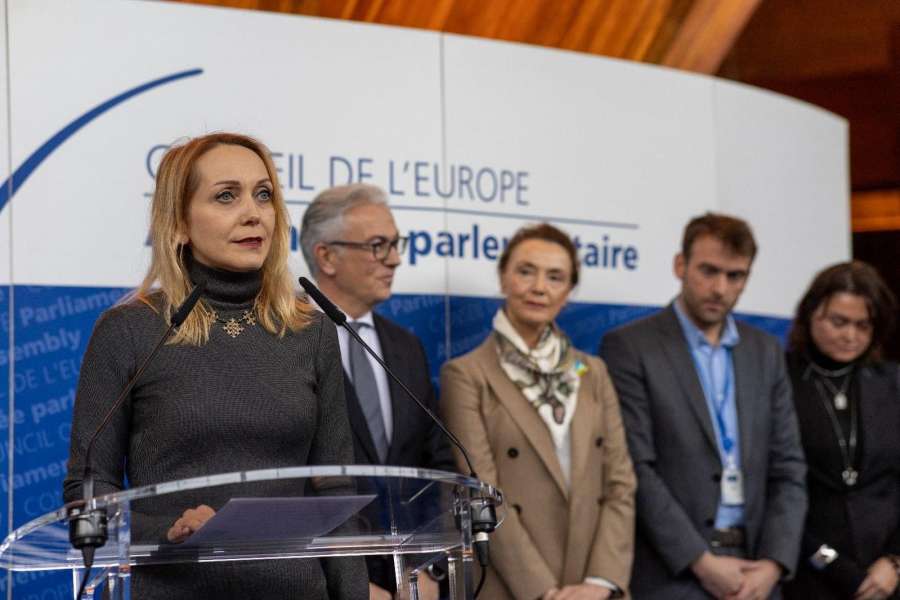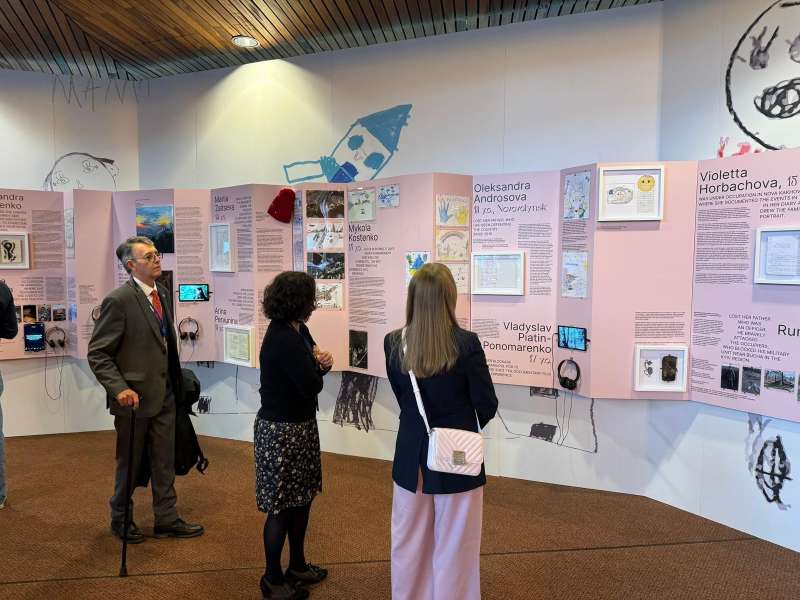As part of its work on the sidelines of this winter session, the Ukrainian delegation managed to get a number of resolutions adopted that are important for Ukraine.
In particular, on the situation of children in Ukraine, torture, ill-treatment of persons held in European prisons, guaranteeing media freedom and safety of journalists, as well as cooperation and Ukraine's accession to the Organization for Economic Cooperation and Development (OECD).
What does the adopted Resolution on the Situation of Children in Ukraine (No. 2529) provide for?
The Resolution on the situation of children in Ukraine primarily calls on the member states of the Council of Europe to recognize the deportation of Ukrainian children by russia as genocide and proposes to extend sanctions for participation in the forced deportation of Ukrainian children to include propagandists involved in these crimes.
According to Olena Khomenko, the Member of the Committee on National Security, Defense and Intelligence, Vice President of the PACE and Chair of the PACE Ad Hoc Committee on the Situation of Ukrainian Children, the document calls on partners to join and help establish the whereabouts of Ukrainian children deported by russia, return them to Ukraine and impose sanctions not only on putin and lvova-belova, but also on all those involved in the crimes.
“The resolution was voted unanimously. And this is another confirmation that here in PACE, there is no fatigue from Ukraine, no weakening of attention to Ukrainian issues: both to children deported from Ukraine and to internally and externally displaced children,” said the parliamentarian who authored the document.
In addition, according to Mariia Mezentseva, the Deputy Chair of the Committee on Ukraine's Integration into the European Union, Head of the delegation to PACE, the Resolution focuses on five groups of children: those who continue to stay in Ukraine, those who are internally displaced, those who have found temporary protection in Europe, those who are currently missing, and those who have been deported or forcibly displaced to russia and belarus.
“The genocide that russia is committing by forcibly transferring our children to russia and belarus must stop,” emphasized Mariia Mezentseva.
For her part, Yevheniia Kravchuk, the Member of the Ukrainian delegation to PACE, Deputy Chair of the Committee on Humanitarian and Information Policy, noted that compared to Resolution 2495, which the Assembly adopted last April, the new document contains additional provisions to protect Ukrainian children.
In particular, the provision that the deportation of Ukrainian children constitutes war crimes, crimes against humanity and has signs of genocide has been restored. Particular attention is paid to support for internally displaced persons – the Assembly calls on member states to strengthen political support and support for humanitarian organizations to protect internally displaced children.
The resolution also supported the Bring Kids Back UA initiative, the creation of the International Coalition of Countries for the Return of Ukrainian Children and welcomed the establishment of the Child Protection Center, which operates under the supervision of the Ukrainian Parliament Commissioner for Human Rights.
Also, Pavlo Sushko, the Member of the Committee on Humanitarian and Information Policy, said that an important amendment to the Resolution was adopted, which emphasizes that Ukrainian children are leaving Ukraine because of the armed aggression by the russian federation. “Ukraine does not create dangerous conditions for children's lives in our country,” he emphasized, adding that this is important because with this status, the judicial and administrative authorities of Ukraine have jurisdiction to take measures to protect the person or property of a child.
“russia violates the fundamental rights of Ukrainian children: to life, safety and education. Unfortunately, our children are learning about the war period not from books, but from their own lives. putin is trying to deprive Ukraine of its future by taking away our children,” said Larysa Bilozir, the Member of the Ukrainian delegation to PACE.
At the same time, she said that during the full-scale invasion of Ukraine, 513 children were killed by the occupiers, 1,165 were wounded, and another 19,546 children were deported to russia. “And these are only confirmed figures. Without a doubt, this is an outright genocide and a violation of international law. Finally, the world is paying attention to these problems,” emphasized the Ukrainian MP.
On the eve of the adoption of this Resolution, an urgent debate was held on the situation of Ukrainian children who are in the temporarily occupied territories or deported by russia. The First Lady of Ukraine Olena Zelenska joined the event online.
What does the adopted Resolution on torture and ill-treatment of persons held in European prisons, including civilian and prisoners of war captured by the kremlin (No. 2528) provide for?
The Ukrainian delegation emphasized a lot on this topic about russia's abuse of Ukrainian civilian and prisoners of war.
In particular, according to Mariia Mezentseva, the Ukrainian delegates, together with their successors, managed to strengthen the Resolution, namely, adding the following sentence at the end of paragraph 6.1: “Torture and inhumane treatment of Ukrainian civilians, political prisoners and prisoners of war in russian prisons and other places of detention in the temporarily occupied territories of Ukraine cannot be ignored.”
At the same time, after paragraph 8.17, it was added that cooperation with the Council of Europe Development Bank would facilitate the implementation and possible financial support of prison infrastructure reform projects in member states aimed at preventing torture and inhuman or degrading treatment in places of detention.
These amendments were adopted and supported both in the Committee and during the consideration of the document itself.
In the Resolution, the Assembly also strongly condemns the systematic/widespread use of torture and other forms of ill-treatment in some Council of Europe member states and the russian federation.
The PACE believes that such practices not only violate the absolute prohibition of Article 3 of the Convention, but also undermine the rule of law, democracy and the fundamental values upheld by the Council of Europe. The Assembly is convinced that enhanced action is needed to prevent and eradicate torture and ill-treatment in places of detention in Europe as a whole, and to make it a torture-free zone.
“The culture of ‘zero tolerance’ to torture and ill-treatment must have concrete content and should not be just a declaration of intent,” the document states.
In addition, Mariia Mezentseva announced that very soon Ukraine will receive good news regarding the format of the international war crimes tribunal for the russian federation, its legitimacy and maximum international support.
What does the adopted Resolution on Guaranteeing Media Freedom and Safety of Journalists (No. 2532) provide for?
With 49 votes in favor, the Resolution emphasized that the war in Ukraine has caused serious concerns in the media sphere. In particular, journalists covering the largest conflict in Europe since the Second World War are endangering their own safety.
According to Yevheniia Kravchuk, PACE called on the Council of Europe member states to support Ukrainian media and help journalists from Ukraine.
“It is important to note that the explanatory memorandum to the document notes the successful work of Suspilne Broadcasting, which is an example for other public broadcasters from the Council of Europe member states,” the MP emphasized.
In addition, the Parliamentary Assembly of the Security Council recognized the Ukrainian project The Reckoning Project: Ukraine Testifies, which aims to train highly effective journalists and researchers to collect legally admissible evidence so that victims' voices can be heard in courts.
What does the adopted Resolution on Cooperation and Ukraine's Accession to the Organization for Economic Cooperation and Development (No. 2526) provide for?
The adopted document first of all emphasizes that due to the aggressive war of the russian federation against Ukraine, which began in February 2022, which undermined food and energy markets, and because russia deliberately jeopardized food and energy supplies, inflation around the world has risen to levels that many economies have not seen since the 1970s.
At least 70 million people have been pushed to the brink of starvation by the full-scale military invasion of Ukraine's sovereign territory and the destruction of traditional supply chains by the russian federation.
The Resolution emphasizes in separate paragraphs that the Assembly is concerned about man-made disasters, in particular, the deliberate blowing up of the Kakhovka hydroelectric power plant dam by the russian federation on June 6, 2023: “This causes significant damage to the ecosystem, threatens food security and displaces hundreds of thousands of people.”
That is why, by adopting the document, PACE demands the creation of an international mechanism for compensation and bringing the aggressor to justice for environmental damage.
Events organized by the Ukrainian delegation on the sidelines of the PACE winter session
As part of the work of the Ukrainian delegates to the Parliamentary Assembly of the Council of Europe, a number of important events were held on current important issues related to Ukraine.
In particular, on January 22, on the occasion of the Day of Unity of Ukraine, the Ukrainian delegation formed a symbolic chain of unity on the sidelines of the Assembly, which was joined by 43 Council of Europe countries. “On the Day of Unity, we symbolically united with European delegates in a chain of unity to accumulate efforts in the fight against the aggressor, to return all our lands and our people home,” said Rostyslav Tistyk, the Member of the Ukrainian delegation to PACE.
Also, on the initiative of PACE Vice President Olena Khomenko, the Ukrainian delegation opened an exhibition entitled “War Diaries: Unheard Voices of Ukrainian Children” featuring 14 stories of children and teenagers who witnessed the horrors of war in Ukraine.
“This exhibition is about the personal stories of Ukrainian children from different regions of Ukraine who suffered as a result of the war, as well as their diaries and personal belongings. And every detail of the exhibition touches the depths of the soul and speaks louder than any loud statements,” said Olena Khomenko.
She also said that Ukrainian delegates keep the issue of Ukrainian children in focus in PACE through side events, exhibitions, resolutions and debates.
Finally, Yevheniia Kravchuk, the Member of the Ukrainian delegation to PACE, said that in June PACE will vote on a resolution she authored, Countering the erasure of cultural identity in times of war and peace. “Unfortunately, the relevance of this topic is only growing. The russian aggressor is consistently trying to destroy Ukrainian culture, history and identity. Ukrainian children abducted by russia are being forced to forget their own history and language. This is an attempt to steal our future,” she emphasized.
“No matter how hard the russians try to erase the identity of Ukrainians, their attempts will always be in vain, because we are different: we value and cherish our language, history, and cultural heritage. Even in the most difficult times, we use every opportunity to ensure that the whole world does not forget about Ukraine. We will not stop,” said the Ukrainian MP.
